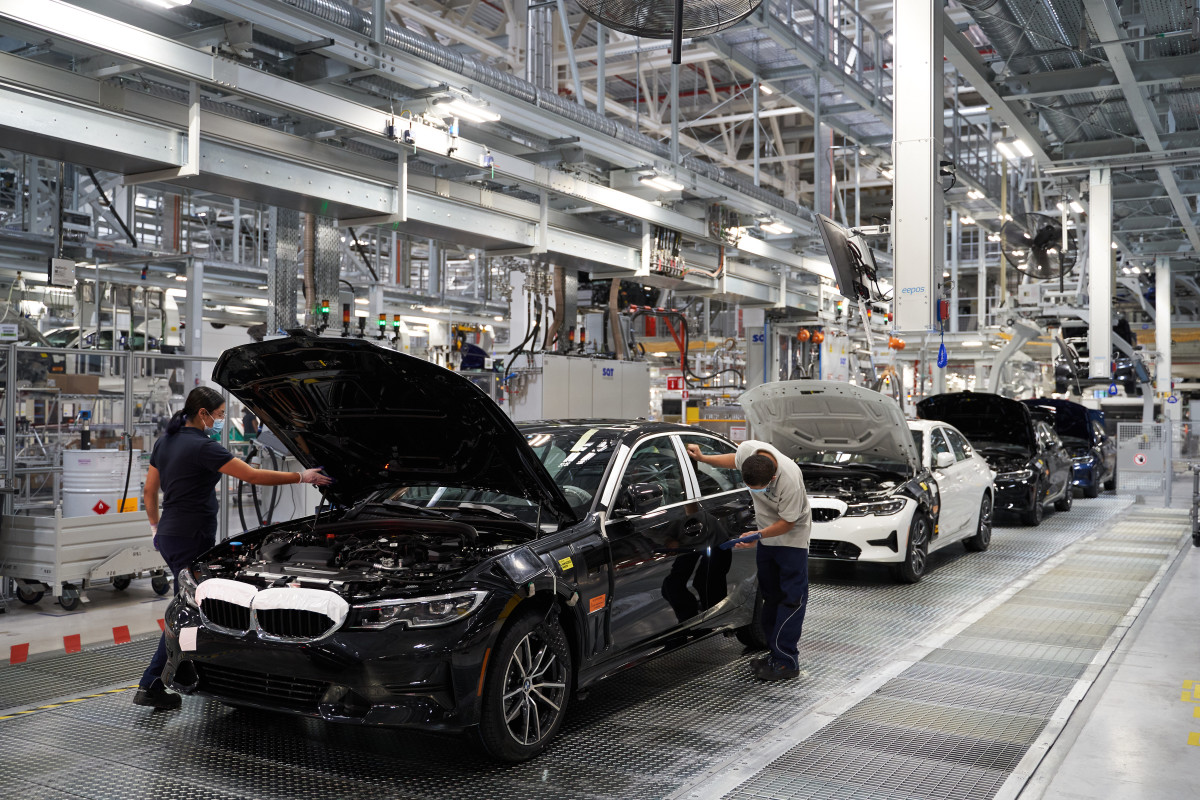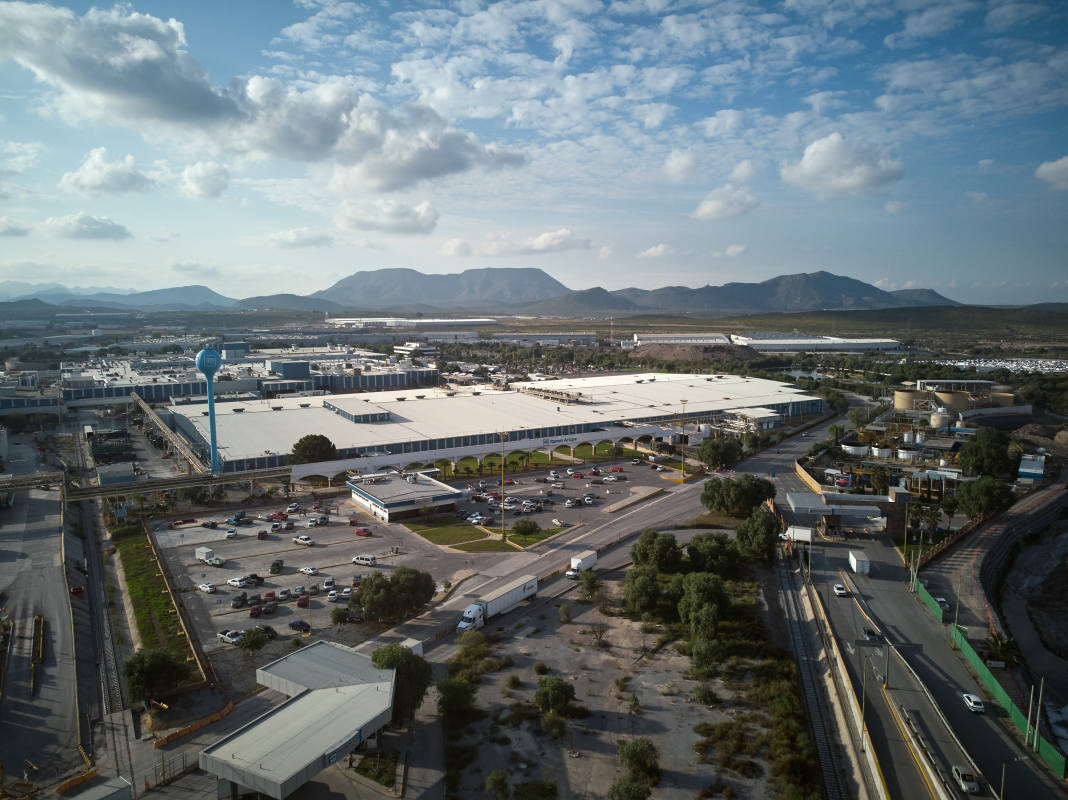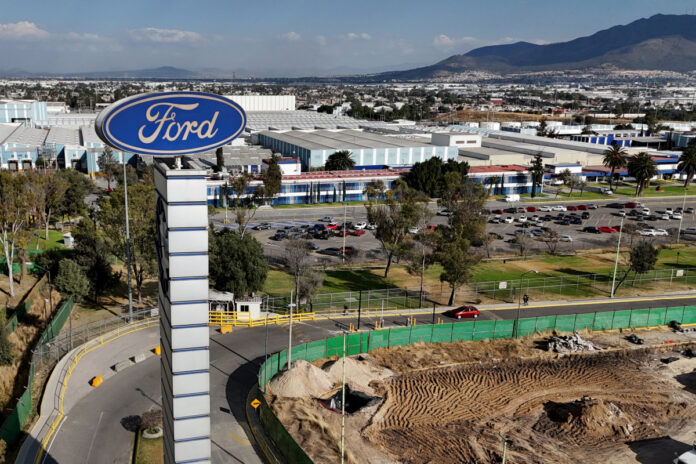The global auto industry is on edge as President Donald Trump’s proposed 25% tariffs on imports from Mexico and Canada send shockwaves through the stock market. Automakers worldwide are grappling with the potential financial fallout, with many seeing sharp declines in their share prices as tariffs threaten to slash their profits.
While a last-minute agreement has temporarily paused the tariffs, uncertainty remains over the long-term future of North American trade relations. President Trump reached last-minute agreements with leaders from Mexico and Canada to pause the tariffs for one month in exchange for increased border enforcement from both countries. News of the agreement spurred a slight rebound in the market for automakers, but investors still appear anxious about the sector.
Related: BMW M3 CS Touring: forbidden fruit never tasted so sweet
Stock markets react to tariff threats
Auto stocks across the world tumbled earlier this week following Trump’s announcement of tariffs on Mexican and Canadian imports. Japanese automakers Toyota and Nissan saw their shares decline, while European giants Volkswagen and Stellantis recorded the biggest intraday decline in European auto shares since April. In the U.S., Ford and General Motors also took hits, with electric vehicle manufacturers Tesla, Rivian, and Lucid following suit.
ALFREDO ESTRELLA/Getty Images
The announcement raised concerns about supply chains that have been built over decades, particularly in Mexico, where German automakers alone operate over 330 sites. Mexico’s role as a manufacturing hub for the U.S. market means the tariffs could significantly disrupt production and sales. In 2023, Mexico’s factories produced and exported 2.8 million passenger cars to American dealerships.
Volkswagen, which exported over 500,000 vehicles from Mexico to the U.S. last year, saw its stock fall nearly 7%. Stellantis, the second-largest European automaker with Mexican production, faced a similar drop. Toyota shares closed 5% lower, while Nissan stock initially plummeted by 10% before recovering some losses.
Related: Is the 2025 Toyota GR Supra worth $56,250?
Supply chains under siege
The proposed tariffs threaten to upend the carefully crafted supply chains that auto manufacturers have spent years developing. Mexico has become a crucial link in North America’s auto industry, with companies like BMW, Daimler Truck, and auto parts suppliers such as Valeo and Forvia heavily reliant on Mexican production. Following the tariff announcement, Valeo saw its shares fall by 9%, while Forvia dropped 13%.

Bloomberg/Getty Images
BMW, which operates a plant in San Luis Potosi, exported over 95,000 vehicles from Mexico to the U.S. in 2023. Daimler’s Freightliner brand, a leader in the U.S. truck market, assembles a significant portion of its vehicles in Mexico, with production relying heavily on cross-border trade.
“Import tariffs on cars sold in the U.S. but produced outside of the U.S. have direct consequences on the profitability of manufacturers,” Moritz Kronenberger, a portfolio manager at Union Investment, told Bloomberg News. “Prices are expected to rise by several thousand dollars to offset the tariffs, which will, in turn, impact sales volume.”
Related: 2025 Mini Countryman Electric: 5 reasons to love it, 2 reasons to think twice
A temporary reprieve, but for how long?
Amid mounting pressure from businesses, lawmakers, and international leaders, Trump agreed to a 30-day pause on the tariffs after reaching agreements with Mexico and Canada on border security measures. Mexican President Claudia Sheinbaum committed to deploying 10,000 National Guard members to reinforce the border, while Canadian Prime Minister Justin Trudeau pledged to increase enforcement against fentanyl trafficking and organized crime.
While this agreement has provided temporary relief, it has not resolved the broader issue. Trump’s recent comments suggest he remains committed to using tariffs as a negotiating tool, and he has already signaled that tariffs on European imports could be next.
Related: Tesla threatened with 100% tariffs in Canada over Musk’s Trump support
The ripple effect on consumers
Should the tariffs ultimately take effect, their impact would extend beyond automakers to consumers. Higher import taxes would drive up vehicle prices, potentially making new cars even less affordable than they already are for many Americans. Auto industry analysts warn that the price hikes could reduce demand, leading to production slowdowns and possible job losses in both the U.S. and Mexico.

Bloomberg/Getty Images
Some businesses are already making adjustments in anticipation of a more protectionist trade environment. At General Motors, CEO Mary Barra said that the company is ready to shift some production to U.S. plants to mitigate the impact on its bottom line.
Porsche and Audi, which currently manufacture all their vehicles abroad, are reportedly looking to shift some production to the United States for the first time. According to German newspaper Handelsblatt, Volkswagen Group is considering utilizing its underused Chattanooga, Tennessee, plant to assemble large Porsche and Audi SUVs. The plant, which currently builds the VW Atlas and ID.4 electric SUV, has available capacity as ID.4 sales in the U.S. dropped by 55% last year.
Related: It’s 2025 – Is Tesla still cool?
A volatile trade landscape
Even with the pause in tariffs, investors and businesses remain on edge. Trump’s comments on Monday suggested he views tariffs as a powerful economic tool, saying to reporters, “Tariffs for us, nobody can compete with us because we’re the pot of gold.” President Trump’s 10% tariff on China went into effect on Tuesday as planned, but whether that tariff sticks is an open question, with Trump planning to talk with Chinese President Xi Jinping in the next few days.
Financial markets, which initially reacted negatively to the tariff announcement, recovered slightly following news of the pause. However, the uncertainty surrounding trade policy has left many industries wary of further disruptions.

Volkswagen
Final thoughts
The global auto industry remains in a precarious position. While the immediate threat of tariffs has been postponed, the long-term outlook is far from settled. Automakers, suppliers, and investors will be closely watching the next round of negotiations, knowing that another wave of tariffs could be just around the corner. For now, the industry can breathe a small sigh of relief—but the road ahead remains uncertain.
Related: Dodge confirms gas-powered Charger Sixpack coming this summer
